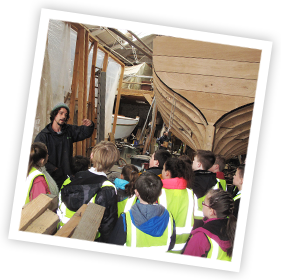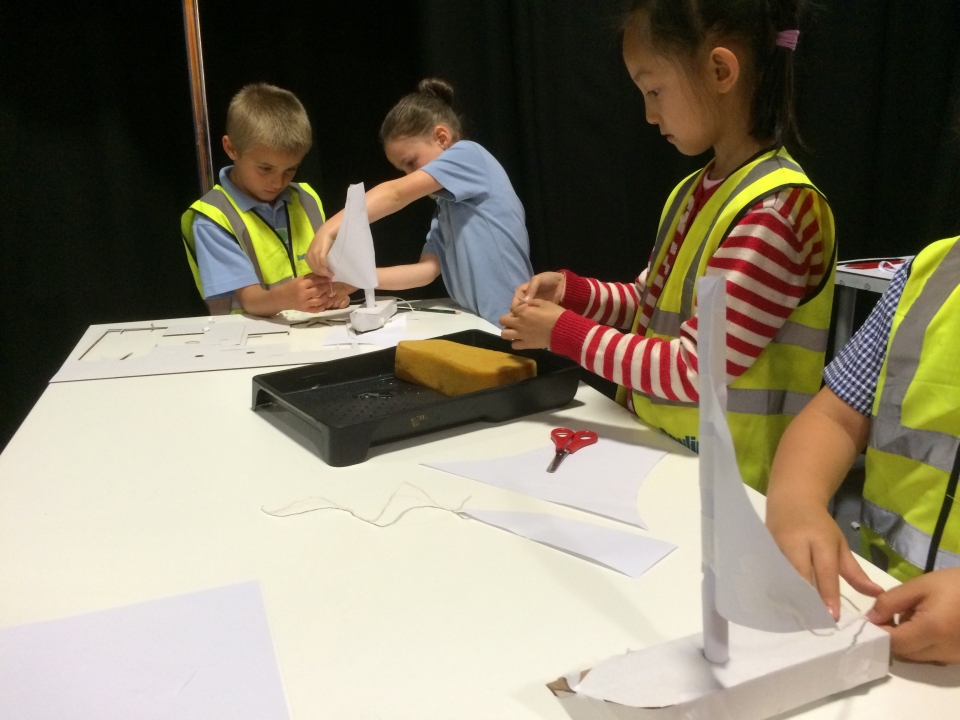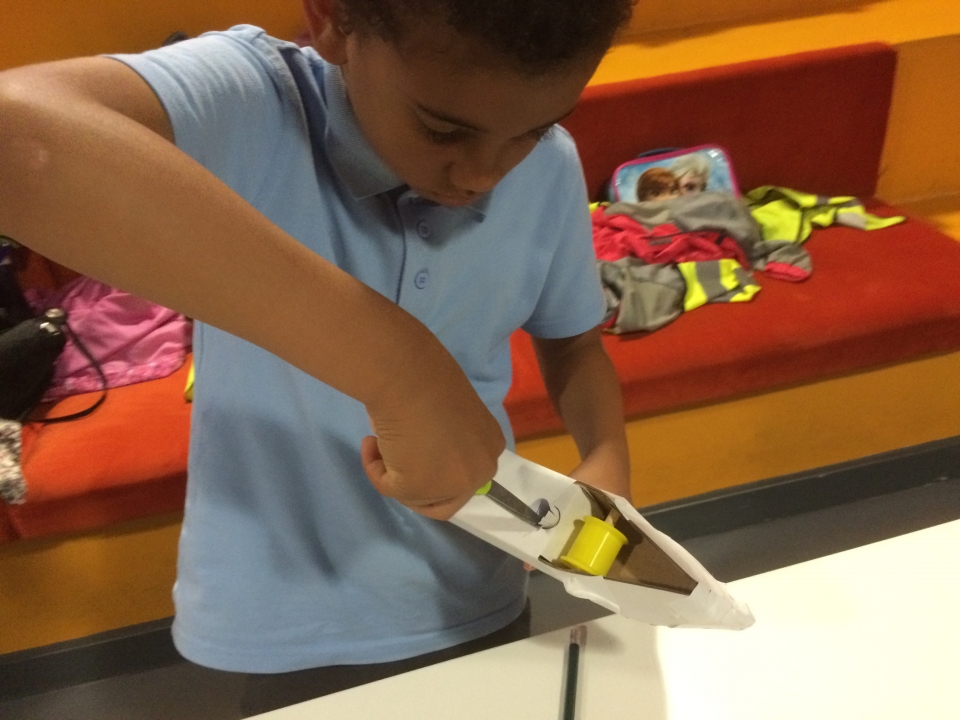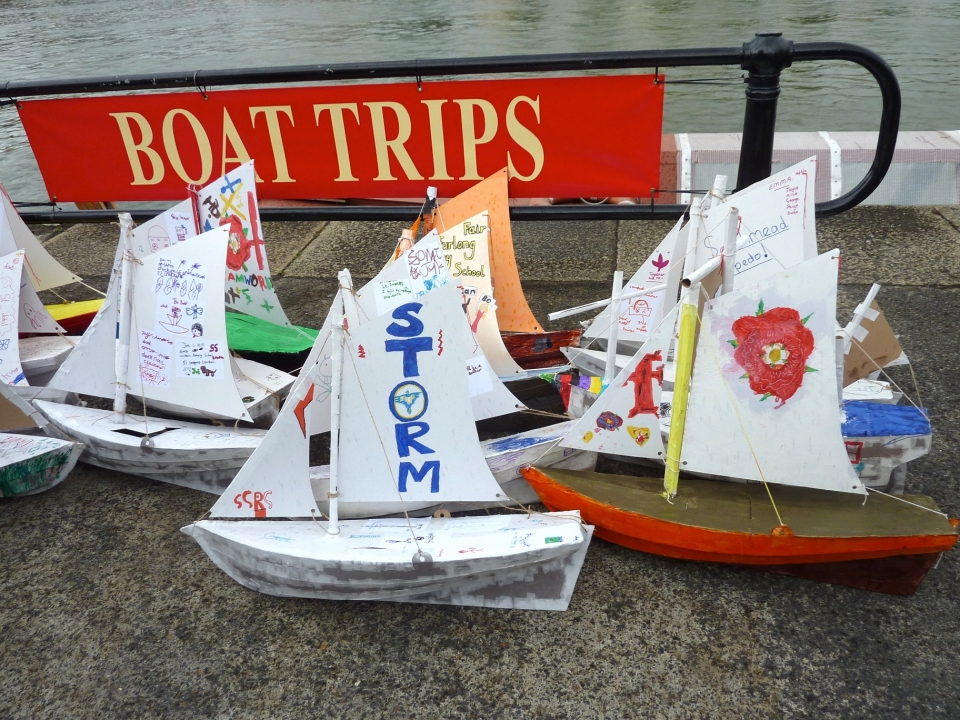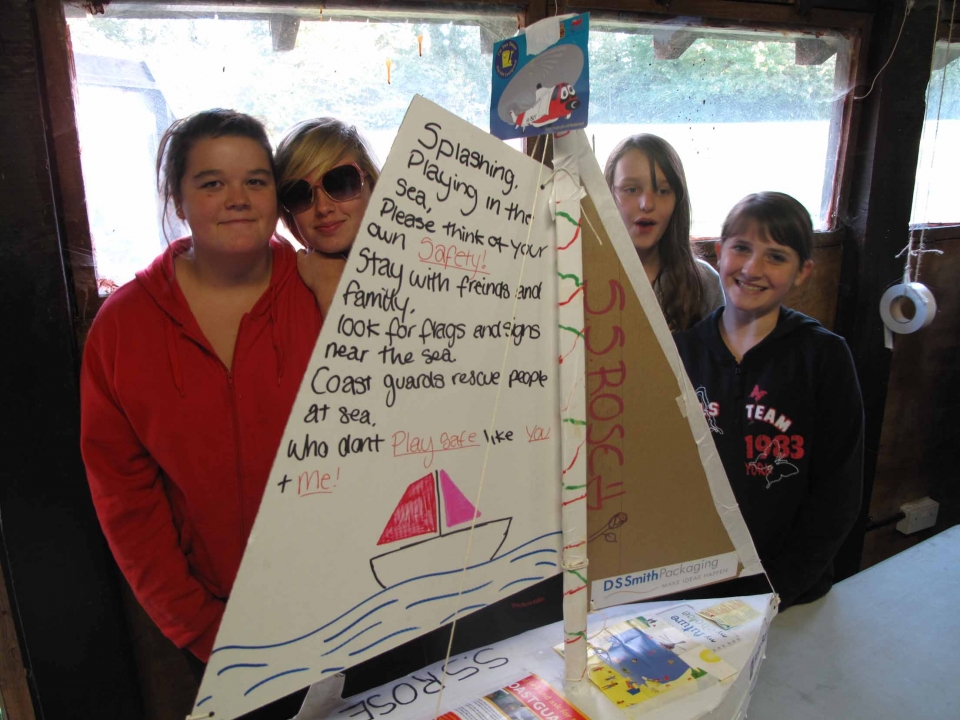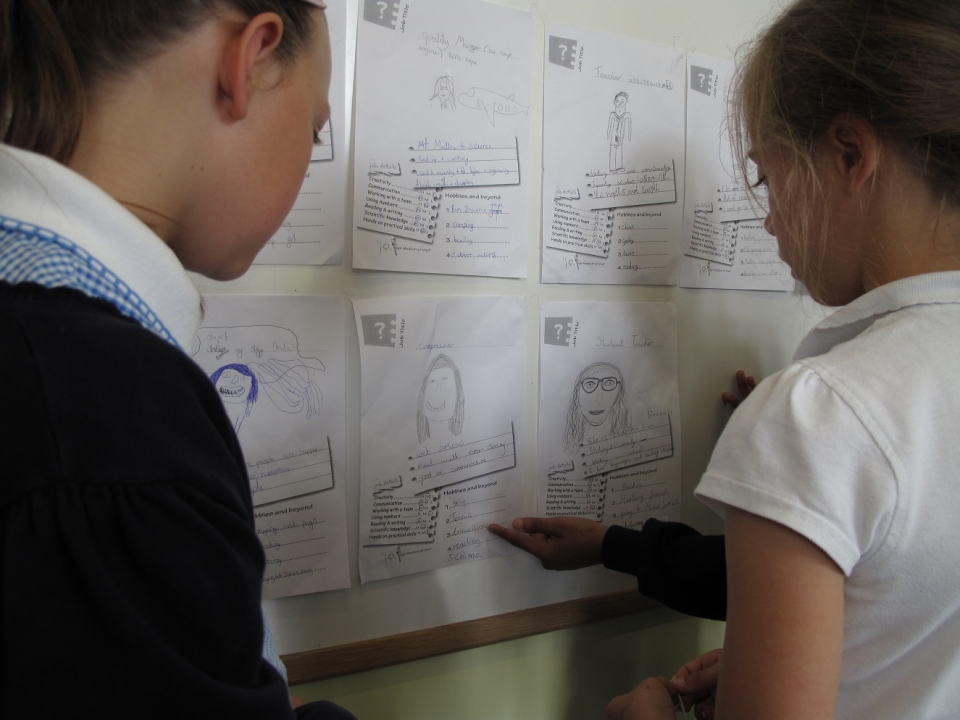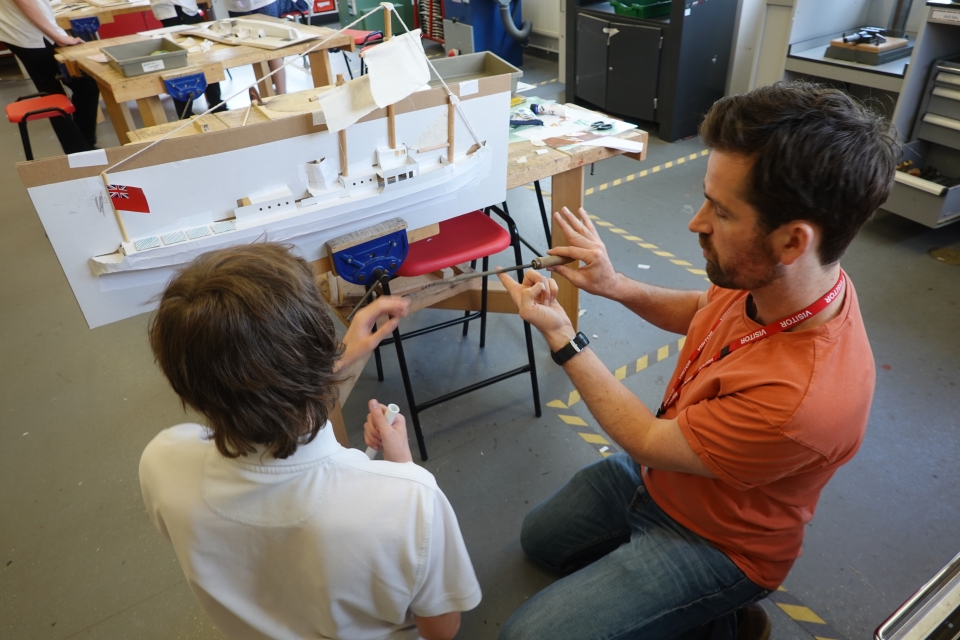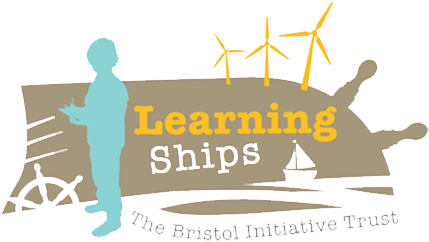
Learning Ships
Practical ways of engaging young people and communities with their region’s maritime heritage and future. For maritime venues around the UK including -
- Bristol- highest tidal reach of any city a tradition of ship building and contentious maritime trading history
- Sunderland- built more ships than any other city in the world
- Hull- largest whaling and trawling fleets
- Stockton on Tees- site of shipyards now cut off from the tides by a barrage
- Leeds- inland dock on waterways that cross the UK
Many communities remain disconnected from their maritime heritage and what it might hold for their future. Through this programme young people of all ages will experience their maritime heritage and future, visit exciting locations and work in teams with business volunteers including maritime architects and engineers.
Learning Ships workshops, explore themes such as:
- Maritime history and future
- Cultural heritage
- Tides and tidal landscapes
- Meeting people from a wide range of job roles in the maritime industry sectors
- Teamwork
- Skills needed for success and happiness in work and life
- Construction skills
5 to 8 mini land-yachts
8 to 12 sail boats for racing in water
13 to 18 Shipping 2050 - Concept ship models
Video explains how to build the pilot cutter
Key Stage 1 - Young Shipwrights (5-6 year-olds). Land Yachts.
Exploration, discovery, transport, journeys and collaboration.
Creation of small wind-powered land-yachts. Pairs of children will work together to make a yacht and then collaborate with other teams to combine hulls into a catamaran that will go faster and further.
What?
- Volunteers meet the children - icebreakers
- Boats, ships and ideas to do with travel, exploration and trade are illustrated/performed'
- Suspend disbelief - the floor (school hall or other venue) is the Atlantic ocean. Two islands are in the ocean. 'Ideas Town in Clever Land' and 'New Found Land'
- Challenge is set to build a boat capable of crossing the ocean
- A bank of Dyson Air Multipliers generate wind power that can be harvested by the machines the children make
- The challenge to build the best boat begins with different options for sail size and shape
- Single hull boats (on wheels) are tested
- Collaborations lead to ideas that combine the combine hulls and increase sail size
- Boat design evolves by testing and they reach further and further until all teams reach 'New Found Land'
- Discussions about being bold, collaborating and taking risks that relate to attitudes to life and learning create an effective round up to the session along with affirming the subject curriculum objectives.
see more
Cost - Through sponsorship from industry partners we aim to provide a half day workshop for 30 young people for £350 or less. (Full cost £575).
......................................................................................................................................
Key Stage 2/3 -Young Shipwrights (7-12 year olds and Community Groups ). Model Boat Racing
Construction , engineering, teamwork, transition, world of work and aspirations
What?
In Bristol workshop are held on the 'People's Liner' the MV Balmoral. Includes Bristol Packet Boat and/or walking tours and visit to Underfall Yard. Similar experiences can be created for other towns and cities usually using a museum or maritime heritage centre. Pupils will
- Meet volunteers from business and industry, ice breakers include the 'My Future My Choice' card game.
- Go on expeditions by boat and/or foot around maritime industry/heritage settings
- Work in teams with volunteers to build models of conic boats from their region
- Decorate boats with aspirations for the future and their thoughts on the skills needed for success and happiness related to leaving Primary School and starting Secondary School
- Sail the boats at a community festival event
- Boats can be stored by us or taken away for further decoration and display in schools or at community centres, museums or art galleries
- Boats will be collected for sailing. (Bristol Harbour Festival Young Shipwrights Annual Boat Race is towards end of July/end of Summer Term)
- Winning boats are awarded prizes
Workshops can be held in schools or at community centres
Along with the range of industry volunteers. We will bring in a maritime experience covering navigation, voyages of discovery, trade and the future of shipping. Where possible RNLI, Coastguard will bring inshore rescue vessels. The Royal Navy are willing collaborators and we facilitate all the volunteers and contributors for the event. RNLI and Navy will often add challenges of their own to the day.
The Young Shipwrights project has reached over 17,000 young people in the last 11 years
see more
Cost - Through sponsorship from industry partners we aim to provide a day workshop for 30 young people for £375 or less. (The actual cost without sponsorship is £1500. Some activities and courses are free due to the generosity of our funders. (Please be aware business funding is not always available)
.....................................................................................................................
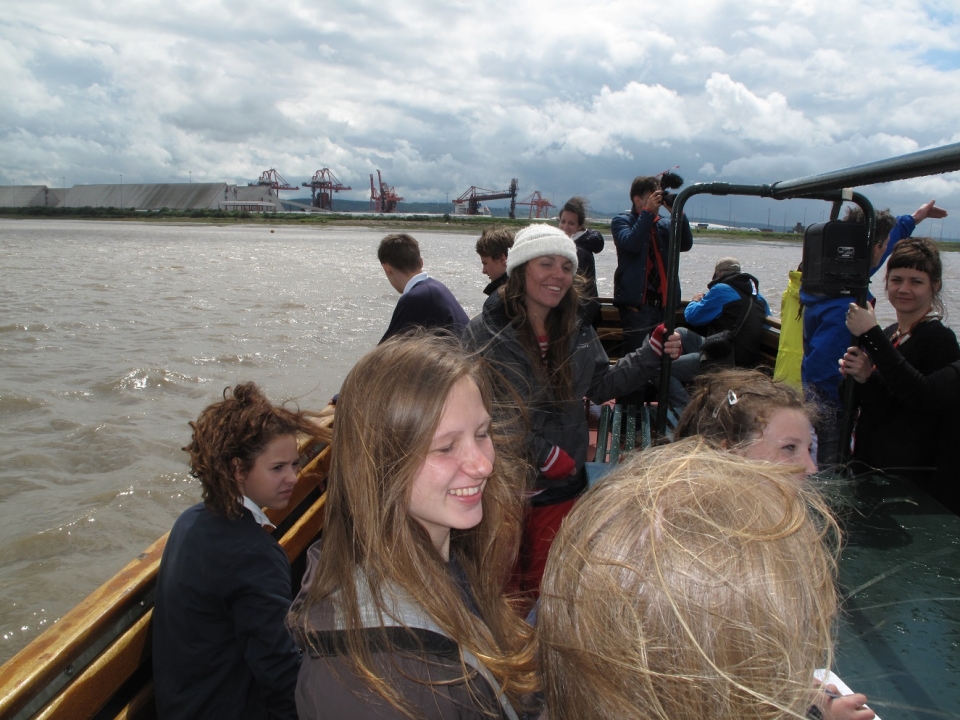
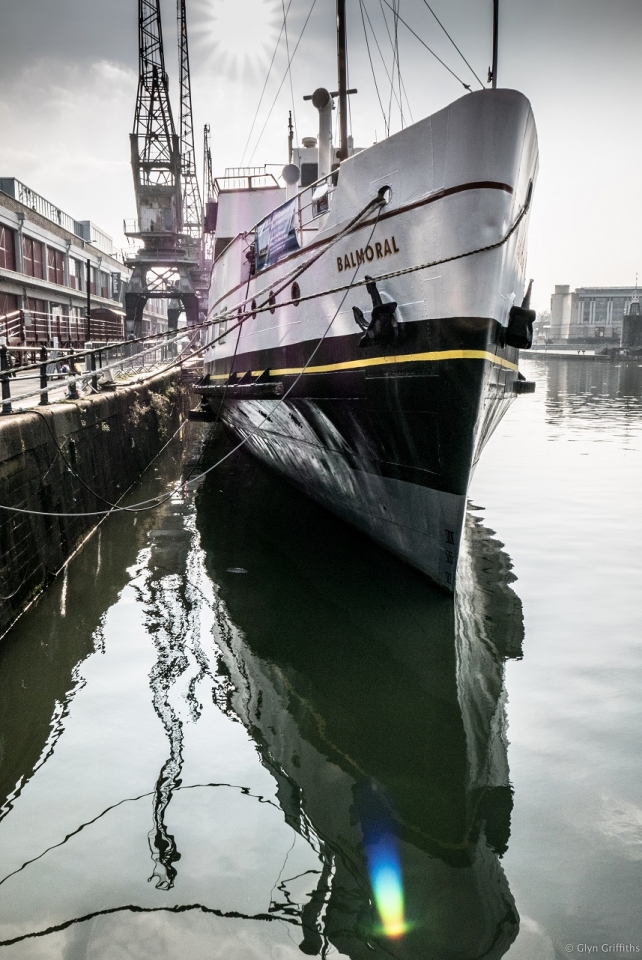
'Shipping2050' Key Stage 3/ 4 and Post 16
Construction, maritime engineering and architecture, propulsion, careers, presentation and teamwork
Workshops held in schools and on ships. In Bristol we use our classroom afloat the MV Balmoral, a large passenger vessel moored outside M Shed in Bristol's Floating Harbour. Students will-
- Work in small teams with an engineer, marine architect, shipwright or sailor.
- Rotate through illustrated interactive short talks about aspects of shipping and ship design
- Explore a ship and build a half model of a basic ship
- Discuss issues facing shipping industry and possible solutions
- Re design and their model to create their own design for a concept ship fit for the future
- Present their ideas and concept ship models
- Options for follow-up work in school with industry partners
- In Bristol the final designs for concept ships are exhibited on board the MV Balmoral as part of the Bristol Harbour Festival with an awards evening for families and judges from the maritime industry.
See more
Cost - Through sponsorship from industry partners and trusts we provide a day workshop for 30 young people for £400 or less. Normal cost is £1500
.......................................................................................................
'Build a Boat' - for Post 16 / Colleges / Community Groups
Construction, engineering, materials, teamwork
Schools and businesses work together to build a boat. Suits post 16 students working with businesses. A practical activity that will motivate and inspire business staff as well as school students.What?
- Contact us to make an enquiry or make a plan about when and where the boat(s) will be made
- We bring schools, businesses and a boat builder together. We negotiate costs with both parties and where possible use business connections to reduce costs of materials and CNC cutting out of parts
- The project could run one day a week for 6 or 8 weeks and produces a small dingy/row boat
- Boats are launched and used. The ownership/ storage of the boat can be with the school or the business but all can access the boat to enjoy it.
Costs - these vary depending on the boat(s) being built. Please make an enquiry to discuss.
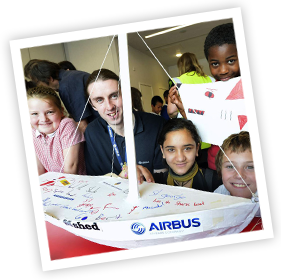
Learning Outcomes:
- Team work
- Understanding jobs and opportunities (Gatsby Benchmark objectives)
- Raised aspirations
- Communication and presentation skills
- Practical building and construction skills
- Deeper understanding of specific periods of maritime history/trade and exploration
- Local Heritage
